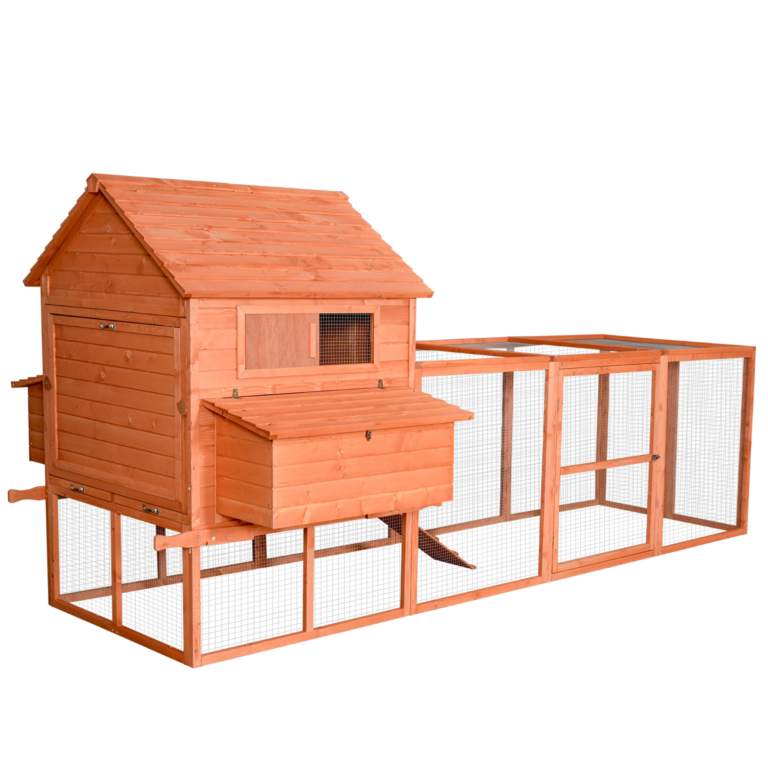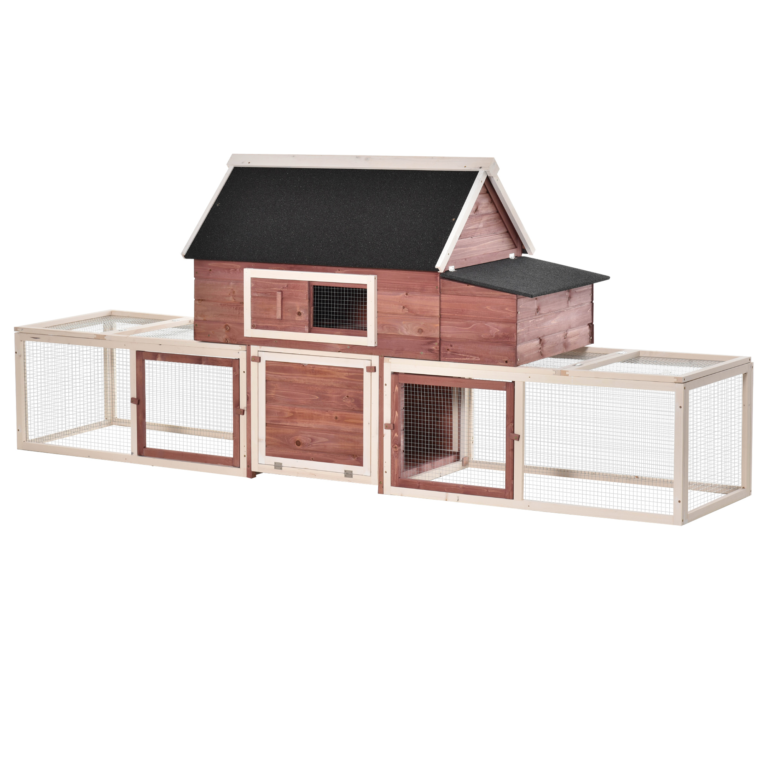
This post may contain affiliate links. As an affiliate, we earn from qualifying purchases. But we only recommend products we would use ourselves. View our Disclosure Policy here.
In an era where environmental consciousness is paramount, transforming your backyard into a sustainable haven not only benefits the planet but also enhances your quality of life. From growing your own vegetables and medicinal herbs to harvesting rainwater and raising chickens, there are numerous steps you can take to create a self-sufficient and eco-friendly backyard. In this guide, we’ll explore various aspects of sustainable backyard living, including vegetable and medicinal gardening, raising chickens, rainwater collection, and embracing life-giving methods for a comfortable and harmonious lifestyle.
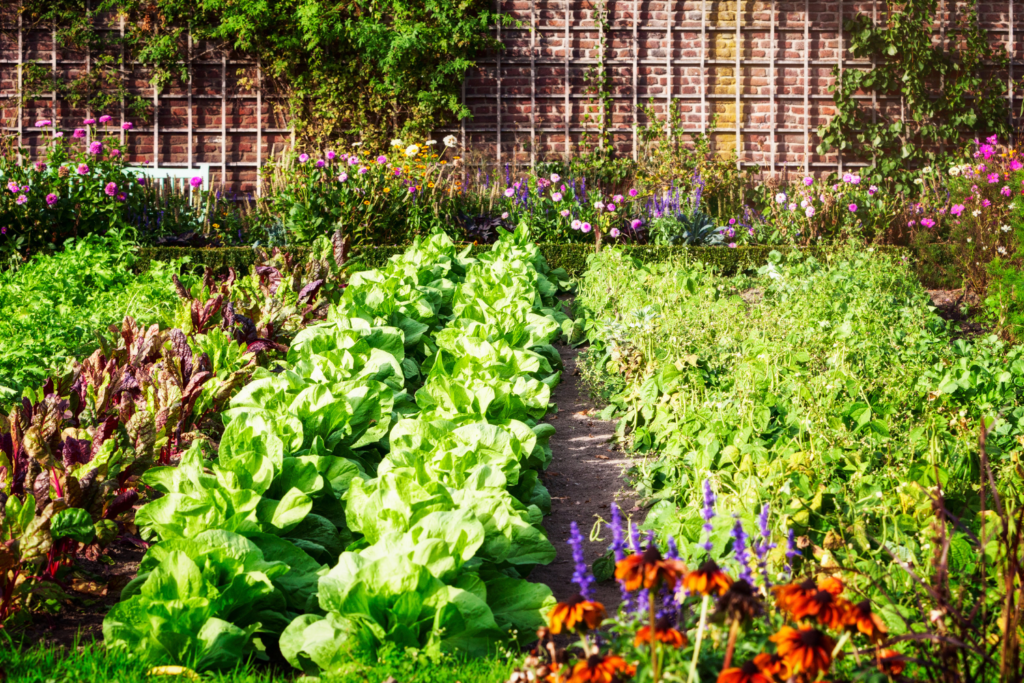
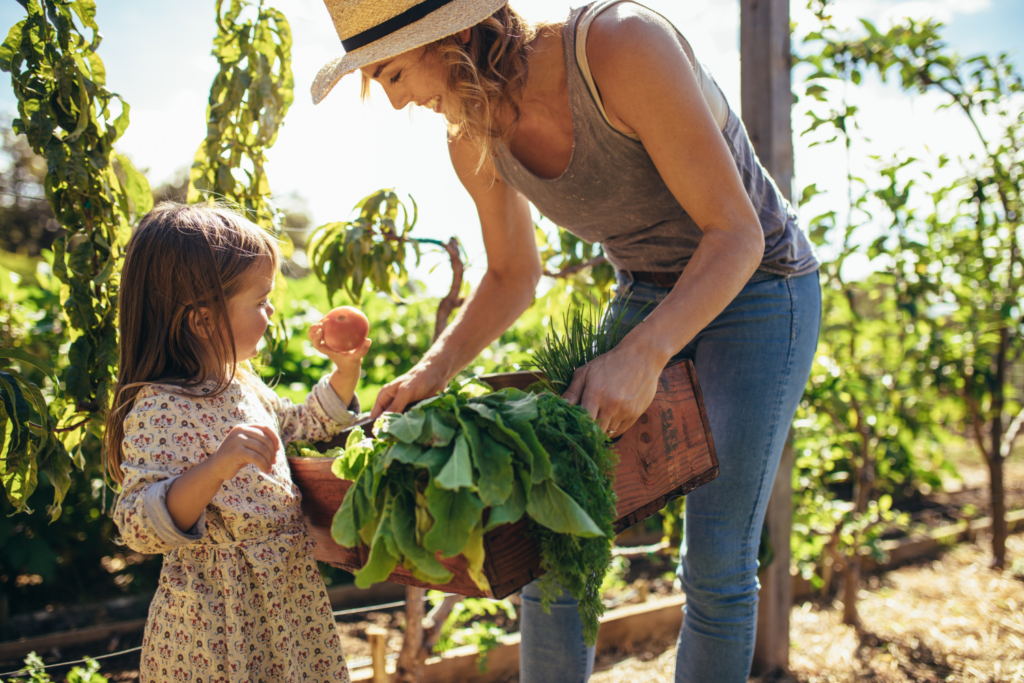
Vegetable Gardening: Cultivating Nutrient-Rich Bounty
One of the cornerstones of a sustainable backyard is vegetable gardening. Growing your own vegetables not only ensures a fresh and nutritious supply of food but also reduces your carbon footprint by minimizing transportation emissions. Here are some steps to kickstart your vegetable garden:
Assess Your Space: Determine the available space in your backyard and choose an area with adequate sunlight exposure for your vegetable garden. Consider raised beds or container gardening if space is limited.
Soil Preparation: Invest in organic soil amendments such as compost, manure, and mulch to enrich the soil and promote healthy plant growth. Conduct a soil test to assess nutrient levels and pH, and adjust accordingly.
Choose Suitable Crops: Select vegetable varieties that thrive in your climate and growing conditions. Opt for heirloom or open-pollinated seeds for biodiversity and sustainability.
Companion Planting: Embrace companion planting techniques to naturally repel pests, enhance soil fertility, and maximize space utilization. For example, plant marigolds to deter pests or intercrop beans with corn to improve nitrogen fixation.
Water Conservation: Implement water-efficient irrigation methods such as drip irrigation or soaker hoses to minimize water wastage. Mulch around plants to retain soil moisture and suppress weed growth.
Medicinal Gardening: Harnessing Nature’s Remedies
In addition to growing vegetables, consider incorporating medicinal plants into your backyard garden. Medicinal gardening allows you to cultivate a diverse array of plants with therapeutic properties, promoting holistic health and well-being. Here’s how to get started:
Research Medicinal Plants: Explore the wide range of medicinal plants suited to your climate and growing conditions. Include herbs such as lavender, chamomile, peppermint, and echinacea, known for their medicinal properties.
Create a Healing Garden: Designate a section of your backyard for a dedicated healing garden, where you can grow medicinal plants alongside aromatic herbs and flowers. Consider incorporating paths, seating areas, and decorative elements to enhance the ambiance.
Harvest and Preservation: Learn about the optimal harvesting times and techniques for different medicinal plants. Experiment with various preservation methods such as drying, tincturing, and infusing oils to extend the shelf life of your herbal harvest.
Educate Yourself: Take the time to educate yourself about the medicinal properties and uses of the plants in your garden. Invest in reputable books, online courses, or workshops to deepen your knowledge of herbalism and natural healing.
Raising Chickens: Sustainable Poultry Farming
For those interested in animal husbandry, raising chickens provides a valuable source of eggs, meat, and fertilizer while fostering a deeper connection to the food production process. Here are steps to incorporate chickens into your sustainable backyard:
Check Local Regulations: Before acquiring chickens, familiarize yourself with local zoning ordinances and regulations pertaining to urban poultry keeping. Obtain any necessary permits and ensure compliance with health and safety standards.
Choose the Right Breed: Select chicken breeds that are well-suited to your climate, space limitations, and intended purpose (e.g., egg production, meat, or dual-purpose). Consider factors such as temperament, egg color, and cold-hardiness when choosing breeds.
Provide Adequate Housing: Invest in a secure and spacious chicken coop or enclosure that provides protection from predators, inclement weather, and temperature extremes. Ensure proper ventilation, roosting space, and nesting boxes for your flock’s comfort.
Nutrition and Care: Offer a balanced diet consisting of commercial poultry feed supplemented with kitchen scraps, grains, and greens. Provide access to fresh water at all times and maintain clean bedding to prevent disease and parasites.
Utilize Chicken Manure: Harness the nutrient-rich properties of chicken manure to fertilize your garden and improve soil fertility. Compost chicken droppings along with other organic matter to create a natural and sustainable fertilizer for your plants.
PawHut Outdoor Wooden Chicken Coop Pen
FREE SHIPPING
PawHut Large Hen House Chicken Coop Pen
FREE SHIPPING
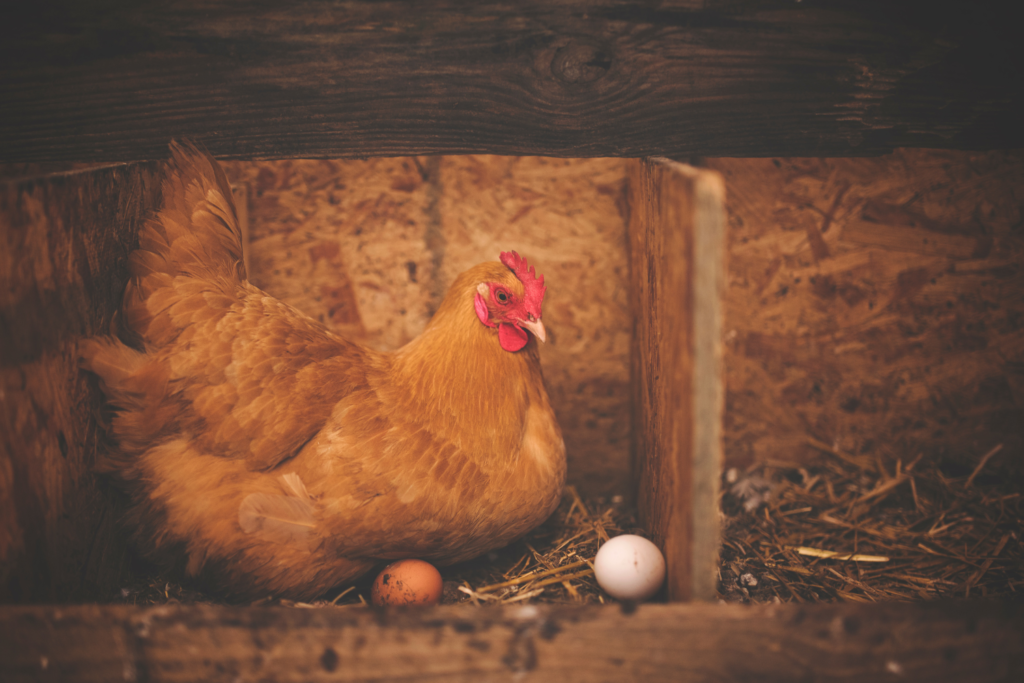
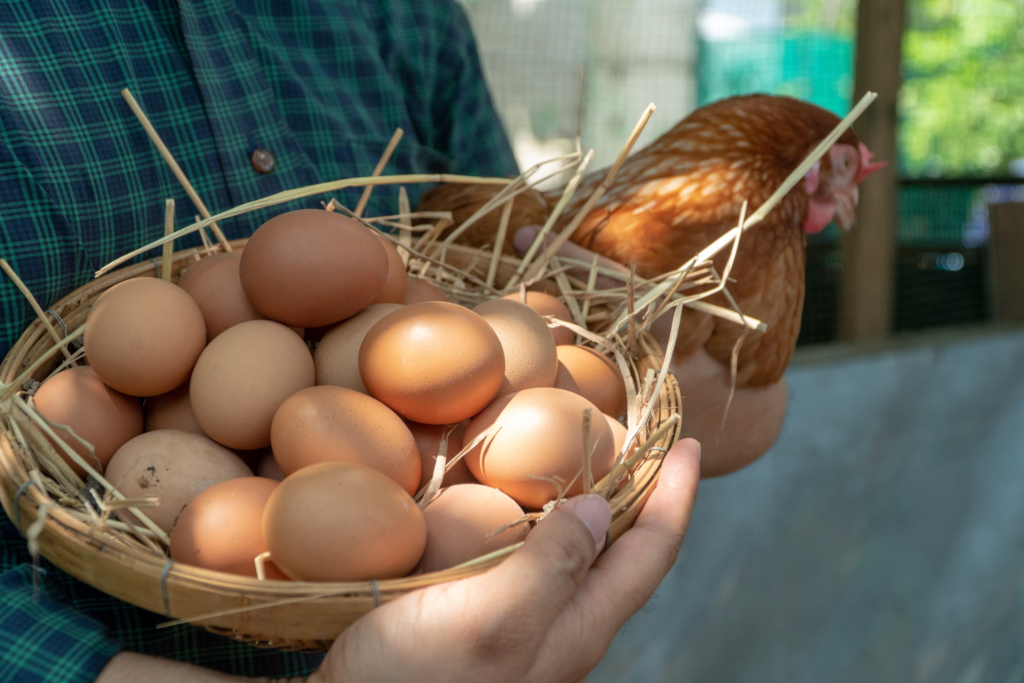
Rainwater Collection: Harvesting Nature’s Bounty
Harnessing rainwater is an eco-friendly way to reduce reliance on municipal water sources while providing a sustainable supply for irrigating your garden and other outdoor activities. Follow these steps to implement rainwater harvesting in your backyard:
Assess Roofing and Gutters: Evaluate the surface area of your roof and the condition of your gutters and downspouts. Ensure that gutters are clean and free of debris to maximize water capture efficiency.
Install Rain Barrels or Tanks: Invest in rain barrels or larger cisterns to collect and store rainwater runoff from your roof. Position them near downspouts for easy installation and maintenance.
Implement Filtration Systems: Install mesh screens or gutter guards to prevent leaves, twigs, and other debris from entering the rain barrels or tanks. Consider incorporating a first flush diverter to divert the initial runoff, which may contain pollutants, away from the storage system.
Use for Irrigation: Utilize collected rainwater for irrigating your garden, lawn, and landscape plants. Connect a hose or install a drip irrigation system to distribute water efficiently and minimize runoff.
Conserve Water: Practice water conservation techniques such as mulching, soil amendment, and efficient irrigation scheduling to maximize the effectiveness of rainwater usage. Monitor water levels in your rain barrels or tanks regularly and refill as needed during dry spells.
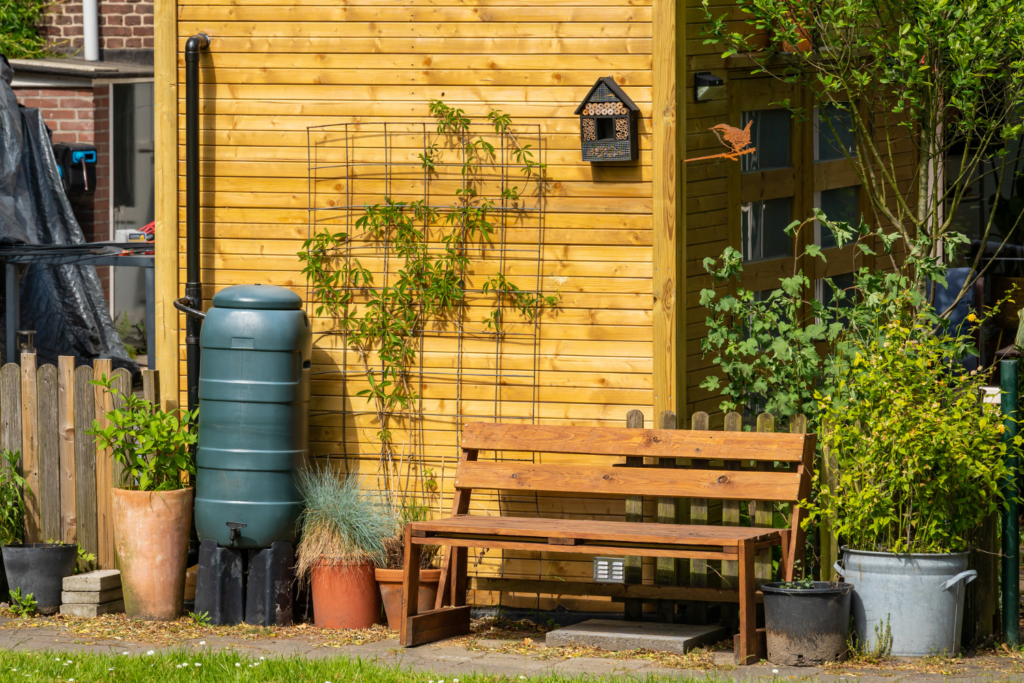
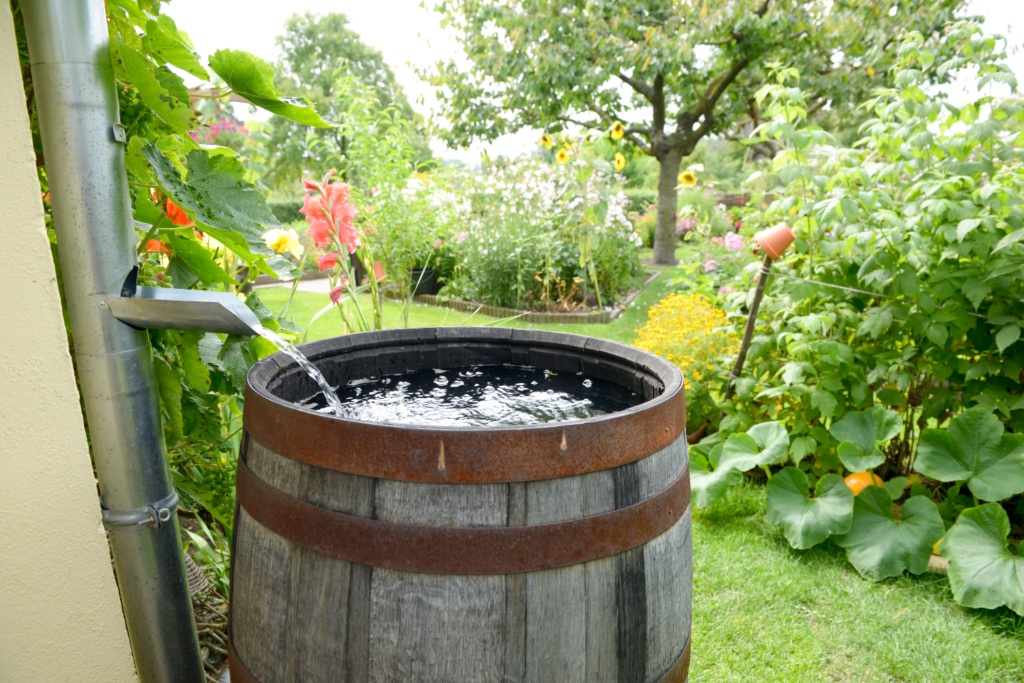
Living a Life of Comfort and Life-Giving Methods
In addition to implementing specific sustainable practices, cultivating a life of comfort and well-being in your backyard involves embracing holistic approaches that nourish the mind, body, and soul. Here are some life-giving methods to incorporate into your sustainable lifestyle:
Create Relaxation Spaces: Design inviting outdoor living areas where you can unwind, meditate, or socialize with family and friends. Incorporate comfortable seating, shade structures, and natural elements such as water features or fire pits to enhance relaxation.
Practice Mindful Gardening: Approach gardening as a mindful practice that fosters connection with nature and promotes mental clarity and well-being. Take time to observe the rhythms of the natural world, cultivate gratitude for the abundance of the earth, and savor the sensory experience of gardening.
Prioritize Self-Care: Make self-care a priority by engaging in activities that nurture your physical, emotional, and spiritual health. Whether it’s practicing yoga in the garden, taking leisurely walks, or indulging in aromatherapy massages, find ways to recharge and rejuvenate amidst the beauty of your backyard oasis.
Connect with Community: Foster a sense of community and collaboration by sharing your sustainable living practices with neighbors, friends, and fellow gardeners. Organize garden swaps, workshops, or volunteer opportunities to inspire others and build a supportive network of like-minded individuals.
Transforming your backyard into a sustainable oasis is a rewarding journey that not only benefits the environment but also enriches your life in countless ways. By embracing practices such as vegetable and medicinal gardening, raising chickens, rainwater harvesting, and fostering a life of comfort and well-being, you can create a harmonious sanctuary that nourishes body, mind, and soul. Start small, experiment with different techniques, and enjoy the bountiful rewards of sustainable living in your own backyard.







